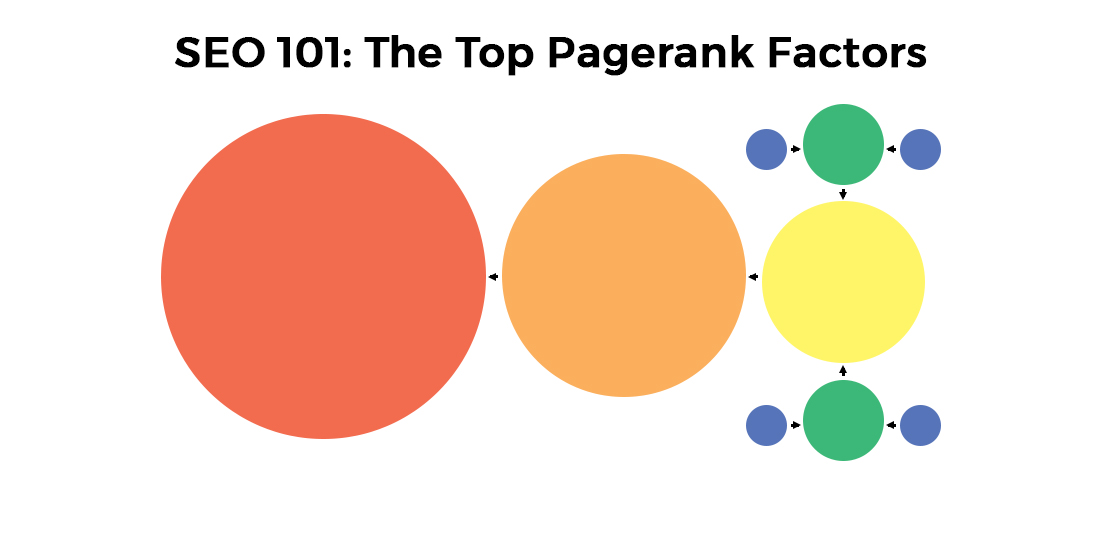We’ve all heard of Google, the search engine many of us use daily to seek online answers to any number of questions we might have. What makes Google powerful is its method of aggregating the immense online world to deliver the best results for your query, a system called Google PageRank.
What Is Google PageRank?
It’s an algorithm developed by Larry Page and Sergey Brin at Stanford in the mid-1990s that determines the position of your website in Google’s search results. The precise formula that determines rank is constantly evolving to accommodate changes in the industry. If you want to appear higher in Google’s search results, then you need to have a higher PageRank authority.
1. Link Back To Quality Sites
Linking to stellar sites with useful content and good user experience makes your company look credible and spreads awareness of your service or product while improving your overall SEO. Google’s PageRank takes into account the quality of sites you link back to. Therefore, the higher amount of high-ranking sites associated with your website, the higher the overall Google PageRank your website will achieve. Avoid low- and zero-quality content since Google penalizes people who incorporate large amounts of spammy links on their site.
2. Embrace backlink diversity!
Don’t be afraid to use different types of backlinks to establish your online reputation, such as guest blog posts, article submissions, and contextual links. Try to avoid linking back to similar or same sites otherwise your website will look like it’s been spammed, thus losing PageRank authority.
3. Link Building
Incorporating links within the body of an article helps your website gain PageRank authority as well. (Links in the footer, sidebar, or byline of an article will also affect PageRank, but to a lesser degree.) However, avoid placing them all on one page. It’s best to add links to different pages of related content on your site to increase your presence on search engines.
4. Concrete Content
In order to maintain its reputation as a highly effective search engine, Google points only to relevant and interesting sites related to the search term. People searching a term will want to find the most applicable and useful resources listed in their search results. Google has emphasized that great content is a major factor of SEO, thus the key to achieve higher rankings is great content that’s informative to attract followers and sustain their interest.
5. Cloaking
When it comes to SEO, cloaking is when you trick search engine spiders into thinking you’re linking to a certain website but, in actuality, you’re linking to another website. Various businesses use cloaking; however, Google is getting smarter and will remove sites that use cloaking as a form of SEO. When it comes to SEO, like in most things, honesty is the best policy.
Keywords are critical for SEO and are usually short phrases. When choosing keywords, try picking vague words that aren’t easily overused and are unique to your company. Creating more than one will help boost your Google PageRank.
6. Title Tags
Title tags describe your article in a small amount of text and constitute an important on-page optimization factor. Not only should you be relevant, you need to choose quality topics and place keywords near the title when you’re creating a title tag. Doing this will enable Google to read the keywords more efficiently and give your website a higher ranking.
7. Keyword Focus
The content of your article should focus around the keywords you’ve selected. Use Google Keyword Planner to get ideas and select your keywords carefully. The keywords should naturally flow within the content to prevent choppy material.
8. Engage on Social Media
Utilizing both Facebook, Twitter, and other social media platforms can help boost your search results, thus increasing your PageRank authority. Having fans and followers helps spread awareness of your business by having them tag you and talk about you in posts. It’s important to post consistently containing intriguing content and incorporating eye-catching images to attract more followers as well as communicating with them.
9. Page Age
Google includes the dates on articles and posts when they were published. More people will likely click on pages that have been posted recently to the current date, so you may want to consider adding a blog to your website that updates regularly.
In essence, higher rankings within search engines will attract more attention to your business along with more customers. Don’t forget to be active and create great content to attract and engage potential clients and increase your PageRank.


